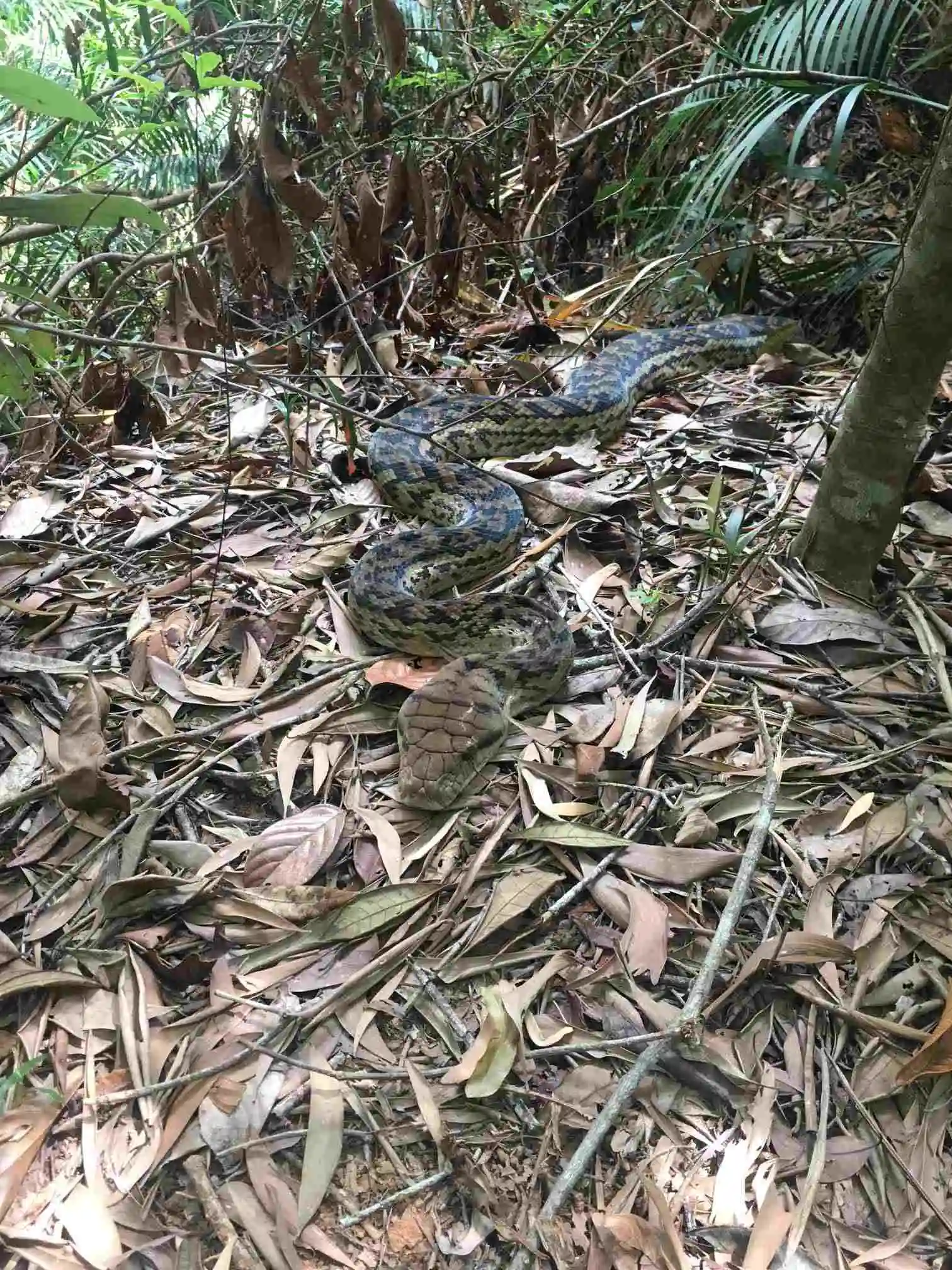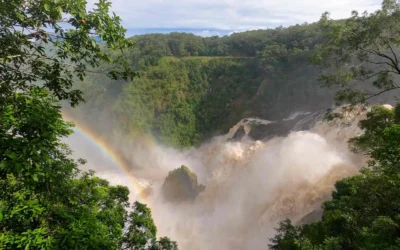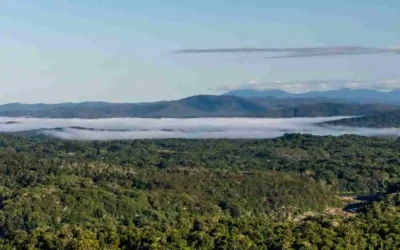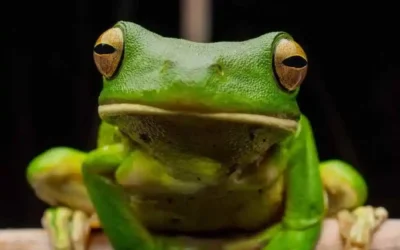Amethystine Pythons in Barron Gorge National Park
The Amethystine Python is named for its iridescent blue sheen that can be seen under certain lighting.
To help keep our tropical rainforest as pristine as possible, Skyrail’s Rangers regularly venture into the undergrowth of the Barron Gorge National Park to monitor for weeds and pests, pick up rubbish and maintain the vegetation around the towers. This aspect of the job is greatly anticipated by all of the Rangers as they often come across some of Cairns’ native wildlife.

This was certainly the case recently when two of our Rangers came across a very large and beautiful Amethystine Python (Morelia amethistina). They are Australia’s longest snake, growing to more than seven metres (23 feet) in length. Although this particular individual wasn’t quite as big as that, it was estimated to be more than five metres!
Juveniles will often be seen in the tree canopy while larger individuals will be found at ground level. Being a large snake, they are capable of preying upon animals as large as wallabies and will frequently eat possums, bandicoots and pademelons.
As a python, they are a constrictor and therefore don’t produce venom to subdue their prey. Instead, they use a mouthful of razor sharp teeth that curve backwards to grab and hold their prey. They then use their strong muscular body to wrap around and suffocate their victim.
Because Amethystine Pythons are non-venomous, they aren’t considered dangerous to humans. They can however be bad tempered at times and their small sharp teeth can cause nasty wounds. Like all wild animals they should be respected, only viewed from a safe distance and never handled or touched.
Be sure to keep an eye out for the Amethystine Python around our Red Peak and Barron Falls Stations. Remember that snakes are not dangerous if they are left alone, but please advise a Skyrail Ranger or other staff member if you do see one.
Tropical rainforest information and Images supplied by Skyrail Environmental Ranger & Wildlife photographer Tim Hackwood.



